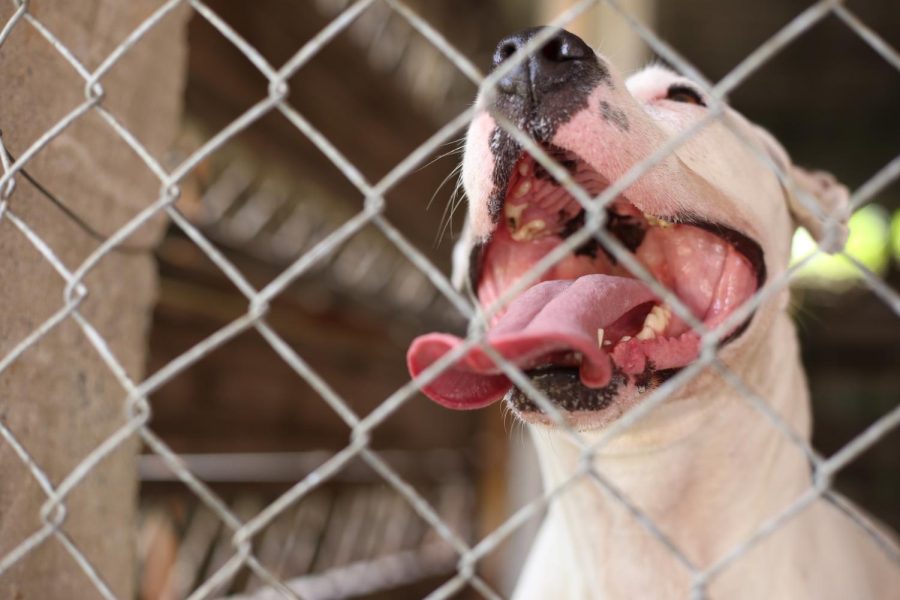Opinion | Dog attacks spark Iowa’s Breed-Specific Legislation conversation
Recent dog attacks in Iowa fortify breed specific legislation, but better solutions exist.
August 30, 2022
If you owned a dog recently, you probably heard about breed-specific legislation.
Breed-specific legislation are local and state laws and ordinances that prohibit specific dog breeds. This has been a subject of debate in Iowa after two serious dog attacks were reported this month.
While this legislation means to protect the public from dog attacks, it may not be the best way to minimize attacks and hold irresponsible owners accountable.
Earlier this month, a woman from Clay County was killed by her five Great Danes. Two days earlier, an eight-year-old in Springville was seriously injured by two “pit bull mixes”.
Breed-specific legislation was put in place in response to similar attacks over the years.
Breed-specific legislation can refer either to restrictions enforced upon specific breeds and their owners or a total ban on the ownership of that breed within a certain area.
Most restrictions aim to limit violent attacks by what have been deemed “dangerous breeds,” which include pit bulls, rottweilers, German shepherds, and chowchows. Breed-specific legislation can also apply to animals based on features and traits such as coat length or eye shape.
Based on the conclusions of the American Veterinary Medical Association, this effort to protect communities — while well-intentioned — is not effective.
A dog’s breed is not a good indicator of their natural temperament. Almost any animal has the capacity to attack a human, but what may truly draw the line between an animal that threatens lives and one that saves them is training, behavioral history, and the responsibility of their owner.
The same breed-specific legislation applied to any domesticated dog is applied to service dogs, drug dogs, and search and rescue dogs despite the certification that these animals must receive to do their jobs.
So how can we prevent injuries caused by man’s best friend? The answer may lie in stronger adoption and training policies.
Pet owners need to be seriously vetted, educated, and held accountable for giving their pets proper behavioral training and for following area ordinances on leashes and fences.
The American Kennel Club opposes breed bans because they are believed to “do very little to actually punish irresponsible dog owners.”
One breed can often be trained to be aggressive for fighting or protection, and as quickly as breed-specific bans come into effect, irresponsible owners will choose a new breed to exploit.
Trends in pet popularity come and go, so breeds that are commonly reported for biting in a city or state may be perceived as being unfriendly when in fact they just make up a large percentage of the area’s dog population.
The American Kennel Club maintains that implementing community-minded solutions like leash laws and better animal control education are the best methods of protecting populations vulnerable to dog attacks.
Breed-specific legislation is typically passed in response to attacks that have already happened. Professional animal training and policymaking (such as fence laws, an emphasis on spay/neuter importance, and irresponsible owner responses) should be implemented as a proactive measure.
This kind of education can come from schools, animal shelters, or general community outreach. It is especially important to teach children how to behave around and take care of their pets because they are one of the groups most susceptible to serious injury from animal attacks.
Adopting an animal is a serious undertaking, and better-educated owners make better-behaved pets.
Columns reflect the opinions of the authors and are not necessarily those of the Editorial Board, The Daily Iowan, or other organizations in which the author may be involved.














